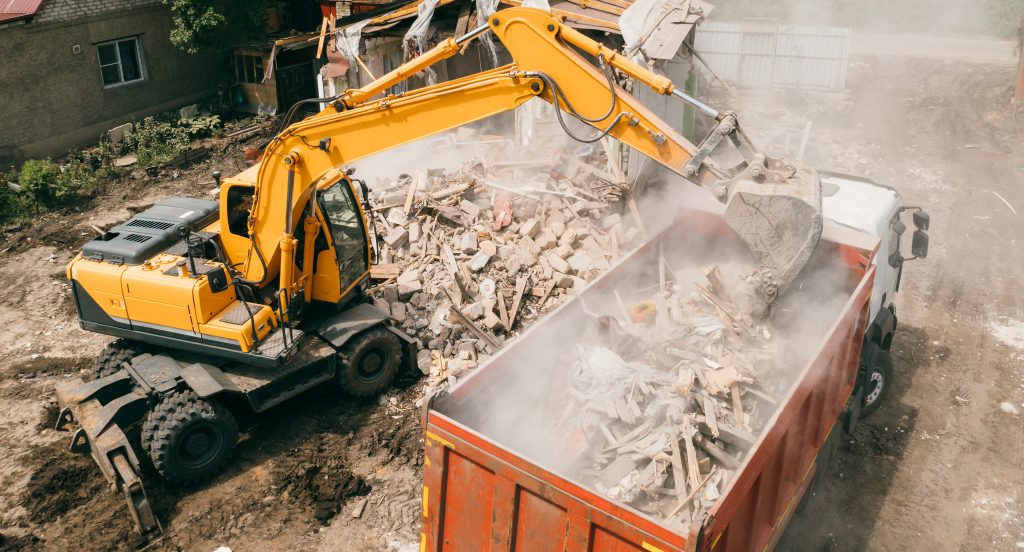
Proper waste disposal is not just a matter of convenience; it’s a critical step towards a more sustainable and environmentally responsible future. When waste is managed correctly, it can have a significant positive impact on the environment. In this blog, we will delve into the various environmental benefits of proper waste disposal, highlighting why it’s crucial for individuals, communities, and the planet as a whole.
-
Reduced Landfill Waste:
One of the most apparent environmental benefits of proper waste disposal is the reduction of landfill waste. Landfills are not only unsightly but also detrimental to the environment. When waste is not disposed of properly, it ends up in landfills, where it decomposes and produces harmful greenhouse gases, including methane. Methane is a potent contributor to climate change, and reducing its release is critical for a sustainable future.
By recycling, composting, and practicing responsible waste management, we can divert a significant portion of waste away from landfills. This not only conserves valuable land but also minimizes the environmental impact associated with landfill sites.
-
Energy Conservation:
Another substantial environmental benefit of proper waste disposal is energy conservation. When we recycle materials like paper, glass, and metals, we reduce the need for energy-intensive processes involved in extracting and manufacturing raw materials. For example, recycling aluminum cans uses significantly less energy than mining and refining new aluminum.
By conserving energy through recycling, we reduce greenhouse gas emissions associated with energy production, which is a major contributor to climate change. It’s a win-win situation: less waste goes to landfills, and we reduce our carbon footprint.
-
Conservation of Natural Resources:
Proper waste disposal plays a vital role in conserving natural resources. When we recycle materials, we extend the lifespan of existing resources, reducing the need for further extraction and processing of raw materials. For instance, recycling paper saves trees, recycling glass reduces the demand for new silica sand, and recycling plastics conserves oil and reduces pollution associated with plastic production.
By conserving natural resources, we not only reduce habitat destruction and energy consumption but also mitigate the environmental impacts of resource extraction, such as soil erosion, water pollution, and deforestation.
-
Reduction of Pollution:
Improper waste disposal can lead to soil, water, and air pollution, all of which have severe environmental consequences. When waste is dumped inappropriately, hazardous chemicals and pollutants can leach into the soil and contaminate groundwater. This contamination can harm ecosystems, affect wildlife, and even pose health risks to humans.
Proper waste disposal methods, including recycling, hazardous waste disposal, and wastewater treatment, help prevent pollution. By diverting hazardous materials away from landfills and treating wastewater before release, we can protect the environment and ensure the health of our ecosystems.
-
Preservation of Biodiversity:
The environmental benefits of proper waste disposal extend to biodiversity preservation. Pollution from waste can harm wildlife and their habitats. For example, marine animals often mistake plastic waste for food, leading to ingestion and entanglement. Land-based pollution can also disrupt ecosystems and harm plant and animal species.
By reducing waste and pollution, we contribute to the preservation of biodiversity. Clean environments support healthier ecosystems, which, in turn, benefit both wildlife and humans.
-
Emission Reduction:
Reducing waste through proper disposal methods also contributes to greenhouse gas emission reduction. As previously mentioned, landfills are a significant source of methane emissions, a potent greenhouse gas. By diverting organic waste to composting facilities, we reduce methane production in landfills.
Furthermore, waste incineration, if done correctly with appropriate pollution control technologies, can generate energy and reduce the release of harmful pollutants into the atmosphere. This sustainable waste-to-energy approach can help reduce the environmental impact of waste disposal.
-
Promotion of a Circular Economy:
Proper waste disposal is a fundamental aspect of transitioning to a circular economy. In a circular economy, products and materials are designed to be reused, repaired, or recycled, rather than disposed of as waste. This approach reduces the demand for new resources, minimizes waste generation, and encourages sustainable consumption.
By participating in recycling programs and supporting the circular economy, individuals and businesses contribute to a more sustainable and eco-friendly future.
-
Enhanced Air Quality:
Proper waste disposal also plays a role in improving air quality. When waste is left to rot in landfills or is incinerated without proper emission controls, it can release harmful pollutants into the air, including volatile organic compounds and particulate matter. These pollutants can contribute to respiratory problems and other health issues in nearby communities.
By implementing modern landfill management practices and waste-to-energy technologies with stringent emission controls, we can reduce the release of harmful substances into the atmosphere and improve air quality.
-
Community Well-being:
Lastly, proper waste disposal contributes to overall community well-being. Clean and well-managed environments are more pleasant to live in, positively impacting the physical and mental health of residents. Proper waste disposal reduces the risk of disease transmission, vermin infestations, and other public health hazards associated with improper waste management.
Additionally, efficient waste disposal systems create economic opportunities through recycling, waste collection, and waste treatment industries, leading to job creation and economic growth in local communities.
In conclusion, the environmental benefits of proper waste disposal are numerous and far-reaching. By reducing landfill waste, conserving energy and natural resources, minimizing pollution, preserving biodiversity, and promoting a circular economy, we take significant steps toward a cleaner, healthier, and more sustainable planet.
Individuals, communities, businesses, and governments all have a role to play in practicing responsible waste management. By adopting eco-friendly practices, supporting recycling initiatives, and advocating for sustainable policies, we can collectively work towards a greener and more environmentally conscious future. Proper waste disposal is not just a responsibility; it’s an opportunity to make a positive impact on our world.
